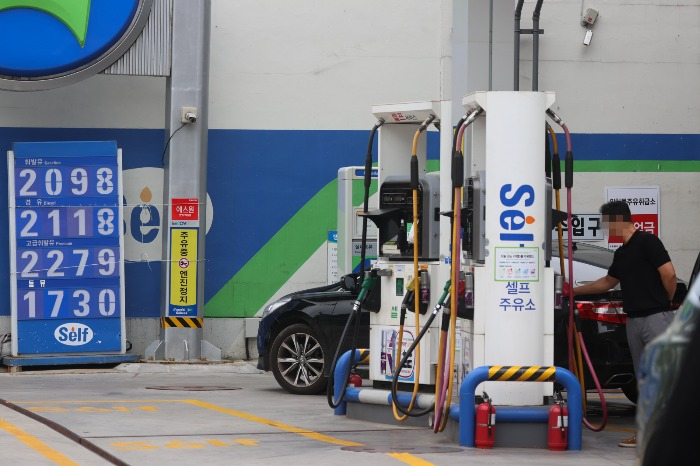South Korea's oil refining margin, a key indicator of refiners' profitability, dropped below $20 over the past month amid global recession fears. However, the downward trend won’t continue and the top four Korean oil refiners, SK Innovation Co., GS Caltex Corp., S-Oil Corp. and Hyundai Oilbank Co., are forecast to post record-high performances this year.
The refining margin per barrel during the first week of July was estimated at $16.13, according to Korea’s oil refinery industry on July 12. It had been above $20 for five weeks since the fourth week of May, but the refining margin plunged alongside falling global oil prices. The Federal Reserve’s rate hike and Dubai crude oil price, which fell below $100 per barrel on July 6, also impacted Korean firms’ refining margin.
The refining margin and global oil prices won’t remain on a downtrend due to undersupply of crude and refined oil, market watchers say. The official selling price (OSP) for August-loading Arab Light to Asia increased by $2.80 a barrel from July to $9.30 a barrel over Oman/Dubai quotes, state oil producer Saudi Arabian Oil Company (Saudi Aramco) said last week. It is close to the record-high premium of $9.35 per barrel in May.
“The US gasoline and diesel fuel inventory as of July is 70-80%, compared to the same period last year. The undersupply of the fuel will continue in the second half of this year,” a Korean refinery industry source said. Global oil prices could soar further if Russia shuts down its liquefied natural gas (LNG) pipelines or the Atlantic hurricanes, which will begin next month, hit the refineries in the US.
These factors will support Korean refiners’ refining margin to remain above $10 per barrel, market sources say. “The top refiners of Korea will show exceptionally great performances from the second quarter – they will reflect the global oil prices drops in losses during the third quarter, however, their performances are likely to rebound in the fourth quarter,” a refinery industry source said.
The refiners’ high performance could re-ignite the
controversy over the windfall tax, a tax on the firms’ extra gains resulting from the surging oil prices. “We will come up with policy measures to minimize their extra profits, or call on them to contribute the extra gains to a state fund,” said Kim Sung-hwan, policy planning committee chief of Korea’s main opposition Democratic Party, last month.
The introduction of a windfall tax is also being discussed in the US – in June, the White House said it considered congressional proposals on imposing a windfall tax on oil and gas producers’ profits to benefit consumers. If implemented, gas and oil giants Exxon Mobil Corp. and Chevron Corp. could be the tax's main target.
The Korean oil refinery industry is resisting the Democratic Party's move to push taxation. The industry argues that the windfall tax is only likely to lower refinery operating rates or increase the proportion of gasoline and diesel fuel exports.
It also says that Korean refiners’ profits rely on refineries only, while global energy giants have diverse revenue-generating sources and can enjoy astronomical returns when oil prices surge. Therefore, it is absurd to impose a windfall tax on Korean refiners just because the US government is considering taxing the global energy giants, the Korean refining industry says.
Write to Jeong-Min Nam at
peux@hankyung.comJihyun Kim edited this article.





